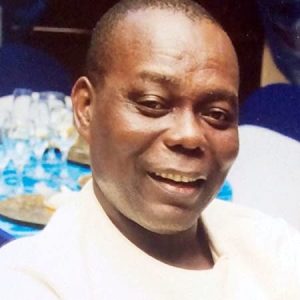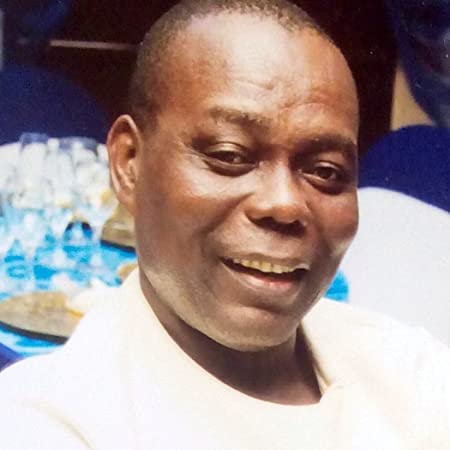By Uzor Maxim Uzoatu
Nigeria is in deep trouble, and there is no use whatsoever beating about the bush over the bad matter.
As I write now, the country is reeling from the barbaric act of some Muslim students stoning to death and burning the remains of the hapless Miss Deborah Samuel in a Sokoto State school because of her alleged blasphemy.
People are lamenting that if there had been responsible leadership in the land the lynch-mob could not have been allowed to take the law into their hands.
Even the mere mention of the arrest of a couple of the killers has led to more riots culminating in the erudite Catholic Bishop of Sokoto Matthew Hassan Kukah suspending the observance of Sunday Masses across the State.

The fear is that the dire circumstances may lead to an eruption of religious warfare in the country as per “baboons and monkeys soaking in blood.”
A good friend of mine blames it all on what he calls “The Mistake of 2015”, and he has just handed over to me a 273-page book titled Before We Forget: Obasanjo’s Letter to President Jonathan and the Aftermath.
Edited by Francis Abayomi and published in 2014 by Peace and Development Projects (PEDEP) in Ogba, Ikeja, Lagos, the book “is aimed at documenting history and deepening engagement of Nigeria’s political and governance processes in the light of the popular debate elicited by the letter addressed to President Goodluck Jonathan by former President Olusegun Obasanjo and made public in December, 2013.”
According to Abayomi, “We found public engagement of issues around the presidential exchanges very critical to our polity, governance and continuous interrogation of leadership question in Nigeria. By this publication, our objective is to avail present and future generations the opportunity of appreciating the whole account of issues and contentions that dominated the historical debate.”
The drift of the book can be gleaned from the bold capitals of the blurb: “When former President Olusegun Obasanjo wrote his ‘historic’ letter to President Jonathan, he probably expected a bouquet of flowers from a broad spectrum of Nigerians, but enlightened Nigerians, including his own daughter, easily saw through him. He didn’t bargain for what he got…”
It’s indeed uncanny for a former president to criticize the then serving president elected from his party.
Obasanjo happens to be the exception to every rule.
It is not for nothing that many of Obasanjo’s critics see him as suffering from “The Messiah Complex”, the know-all habit of almost always having all the solutions to all the problems.
The Vanguard columnist Obi Nwakanma is quoted at the back of the book thusly: “The remarkable thing about Obasanjo is that he has all the answers when he is not in government.”
Before We Forget is divided into four broad parts, notably: the first part containing Obasanjo’s letter, President Jonathan’s reply, Iyabo Obasanjo’s sending-up of her father, Chief EK Clark’s response, former Senate President Ameh Ebute’s missive, Alhaji Mujahid Asari Dokubo’s diatribe; the second part containing a broad spectrum of rejoinders from the media; the third part dealing with opinions from columnists, bloggers, sundry newspapers; and finally the fourth part compiling comments in various websites and social media platforms.
In the acidic letter entitled “Before It Is Too Late”, Obasanjo wrote: “Mr. President, you have on a number of occasions acknowledged the role God enabled me to play in your ascension to power. You put me third after God and your parents among those that have impacted most on your life.”
Obasanjo stated as a sort of epilogue that he had discussed the contents of the letter with General Ibrahim Babangida, General Abdulsalami Abubakar, General Yakubu Danjuma and Dr. Alex Ekwueme “whose concerns for and commitments to the good of Nigeria have been known to be strong.”
Reading between the lines one discovers that the letter “dated December 2, 2013, was leaked to the media on December 11, 2013.”
In his reply, President Jonathan wrote, inter alia, to Obasanjo “that you have done me grave injustice with your public letter in which you wrongfully accused me of deceit, deception, dishonesty, incompetence, clannishness, divisiveness, and insincerity, among other ills.”
As it happened back then, well before President Jonathan published his reply, Obasanjo’s daughter, Senator Iyabo Obasanjo-Bello, had sent a stinker to his father as published by Vanguard.
Quoting Menchus, the 4th Century Chinese philosopher, who said “The great man is he who does not lose his child’s heart”, Iyabo dismissed her father as a “Mr. Know it All” who insists on overshadowing everybody, stressing, “… you surround yourself with idiots who will agree with you on anything and need you for financial gain and you need them for your insatiable ego…Nigeria has descended into a hellish reality where smart, capable people to ‘survive’ and have their daily bread prostrate to imbeciles.”
In his letter entitled “Let The Truth Be Told Before It Is Too Late” Chief EK Clark wrote: “My dear Obasanjo, your allegation that President Jonathan is training snipers in preparation for 2015, is a diabolical concoction and a figment of your imagination.”
For Col. Abubakar Dangiwa Umar, Obasanjo was intent on spearheading a secret agenda. After Obasanjo’s letter, he led the charge as the acclaimed “Navigator” of the squad that waxed strong toward Jonathan’s ouster from power.
It did not take quite long for Obasanjo to start complaining furiously about the direction, or lack thereof, of the General Muhammadu Buhari administration.
Now Nigeria is in a mess and there was even talk by Jonathan’s erstwhile traducers of bringing him back to power.
Nigeria can never be more confused.
Uzor Maxim Uzoatu, a poet and veteran journalist writes from Lagos.


